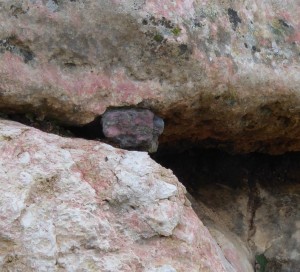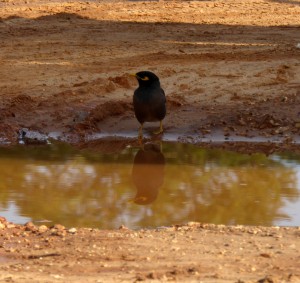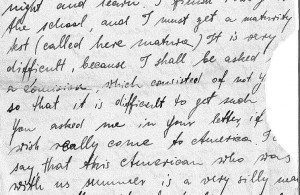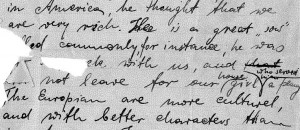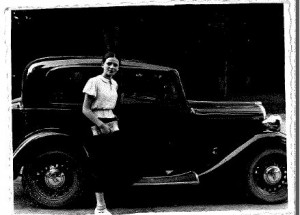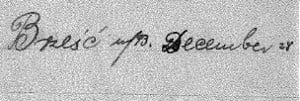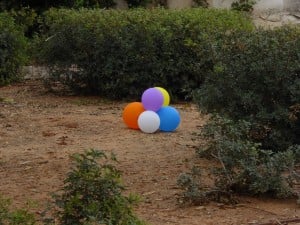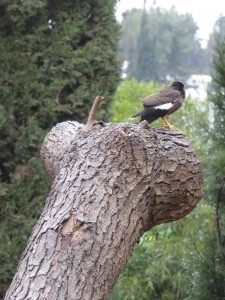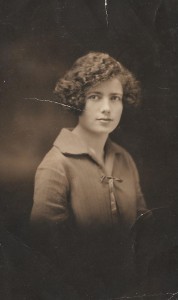
Note: This is part six of a new Saturday series, in which I, with crowdsourcing help, try to unravel the mysteries hidden in previously unknown letters written by my mysterious step-great aunt Dvora /Dora before and during WWll in Poland. For further explanations see previous post.
There's only one word that isn't clear in this letter. It is clear that Dora's life is unravelling...
It's not dated but I believe it's from September 1938.
*** Beata Gulati has supplied some very interesting suggestions to explain the problematic bits of Dora’s previous letter. You can find them at the bottom of the previous post.
“Dear Sister,
Really there passed a long time since I got from you a letter and a post cart but till today I had not find time to answer you. When a man has troubles and is not contented from the circumstances he forgets from all. Now when the father writes you a letter I wish also to answer you.
Thank you very much for the pictures, I was very happy with them. I showed them to my friends and they did not believe I have such beautiful sister. You look very fine and young. Your cart from your vacation I got also and thank you a second time.
About me I have none interesting things to write. My vacation I spent in Brest. I can not leave the house because my mother is ill. All my friends went to Warsaw to study farther in the university. They study all English because here in Warsaw you are not accepted in medicine, stuiathology (??? see below) or other, only in humanistic it means to learn languages. I remain here and till today I do nothing because they are not yet accept to Jews and I am without working.
The wintertime is nearand there comes new troubles. Till the time that I was a pupil in school I did not need much money for dresses et cetera… But now I must dress myself better and in my present conditions it is difficult because I can not take all from the father. My mother is ill so what we must spend money on physicians and medicine. That’s about me.
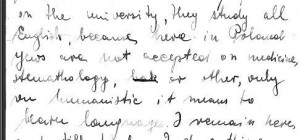
From Palestine we have none letter. We hear very bad news from here (there?), this also brings new troubles.
I write you enough not necessary things, excuse me for this, but sometimes a man must tell a little to the other.
Perhaps have you better news?”
